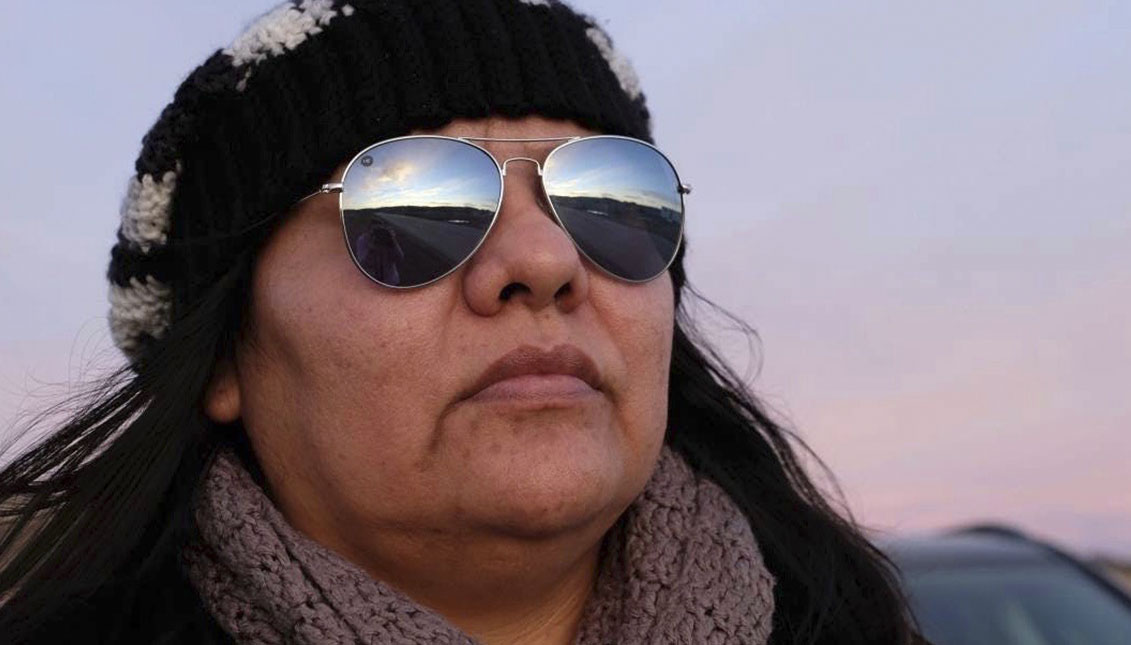
In the footsteps of Deb Haaland: Davidica Little Spotted Horse
The activist and singer is one of the Native American women fighting to preserve culture and prevent missionary churches growing like mushrooms on sacred…
At 46, with a granddaughter and still songwriting, Davidica Little Spotted Horse is one of the best-known fighters for social justice and the preservation of Native American culture. And she's a tough cookie.
In addition to organizing concerts and powwow celebrations, for the past five years, Davidica has been confronting a problem that seemed to have been overcome and that brings back dark memories from history.
In the last decade, some 15 churches have popped up in South Dakota and brought thousands of Christian missionaries to the Pine Ridge Indian Reservation — and while the pandemic contained the growing flood of religious proselytizing, Davidica now fears they will return with their gospel and start handing out nappies.
To make matters worse, not only are the streets of Pine Ridge's largest settlement dotted with religious center, but the only coffee shop there is Christian-themed.
Little Spotted Horse, a native of Pine Ridge — home to the Oglala Sioux Nation — lived until she was 17 in Colorado before returning home to become an emergency technician. About five years ago, in 2015, she adopted the baby of a friend who was having personal problems, but the mother later returned with missionaries to ask for the child back and then was adopted by a Christian family and Davidica lost track of him, according to OZY.
This prompted the artist to start asking around the community and she uncovered a string of stories of sexual, physical and even spiritual abuse allegedly perpetrated by members of the churches, with community residents claiming that some children were taken without their parents' permission. She also believes that many missionaries try to baptize the children of these families without their consent.
Little Spotted Horse now has a radio program where she shares native people's experiences with the new churches. She also works to get legal requirements for background checks and drug testing for those working with children to prevent abuse.
RELATED CONTENT
Alcohol and drug addiction are endemic problems on many reservations, coupled with the poverty and vulnerability of the people, especially children — the per capita income in Oglala Lakota County is less than $10,000.
On top of this, there is the history of forced conversions and abuses experienced until the 1970s on many reservations, and the generational traumas that Little Spotted Horse says missionaries take advantage of, along with poverty.
"Many reservations are traumatized communities and very vulnerable to the 'goodness' of the mission, simply because the people are exhausted by poverty and despair," she says.
The activist also says that missionaries use photos and videos of native children for their charity campaigns —"poverty pornography"— and also charge volunteers.
The situation is not easy, but now that for the first time in the country's history a Native American woman, Deb Haaland, is joining a presidential cabinet, the tide could turn and fighters like Little Spotted Horse could be better supported in their efforts.
As Secretary of the Interior, Haaland will be in charge of managing federal lands and fossil fuel development in these territories, but also more than half a thousand tribes and Indian reservations.
Help, or so it is hoped, is on the way.











LEAVE A COMMENT:
Join the discussion! Leave a comment.